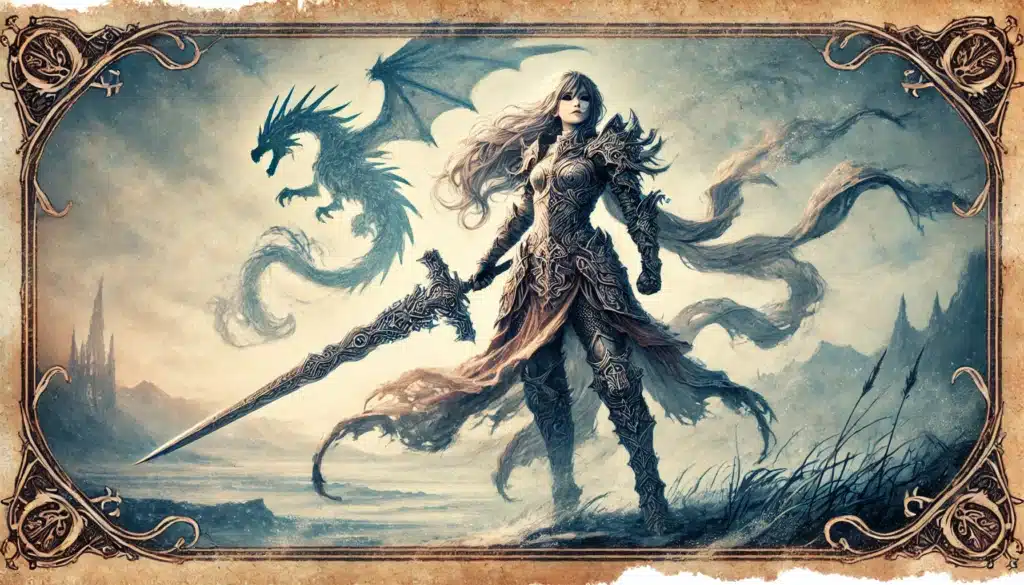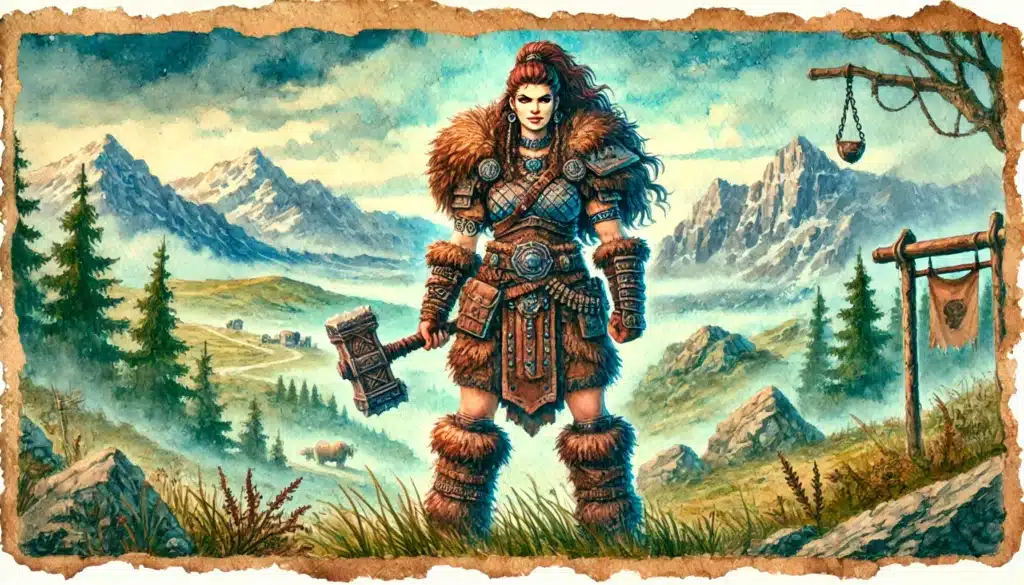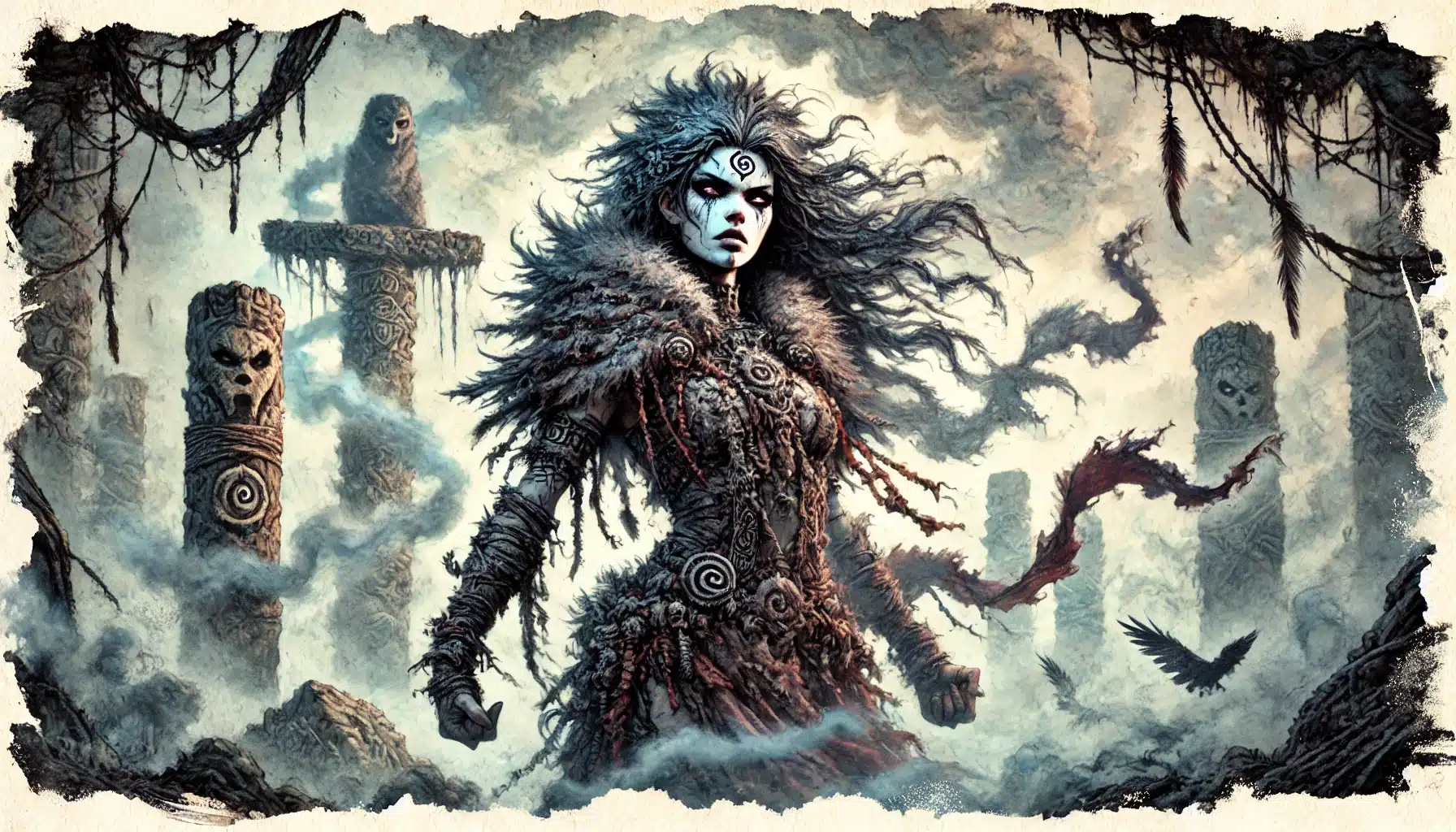Every great character is driven by something deeper than the next quest or treasure haul. Understanding and developing your character’s hopes, fears, and ambitions transforms them from a simple collection of stats into a living, breathing persona. This guide will help you craft meaningful motivations that drive engaging storylines and create unforgettable roleplaying moments.
Whether your character dreams of becoming a renowned warrior or a wise sage, their personal goals are the beating heart of their journey. Goals shape the paths they choose, the relationships they build, and the conflicts they face. In essence, their ambitions are the essence of their story, weaving a rich tapestry of triumphs and trials.
While your character’s goals might start small, they can evolve into a web of complex desires that influence their every decision. This journey from simple motivations to deep ambitions adds layers to your character’s development, making each roleplaying session a new chapter in their ongoing saga.
Understanding Character Motivation
Before diving into specific goals, it’s essential to understand what drives a character—what makes them tick, and how these inner desires shape their actions and decisions. Motivation isn’t just about what a character wants in the immediate moment; it’s a fundamental force that influences how they view the world, respond to challenges, and form relationships. By dissecting motivation, we can create more layered and believable characters who behave consistently, adding depth to stories that resonate with everyone at the table.
At the heart of every character’s motivation lie needs and desires. Needs can be basic, such as survival, safety, and belonging, or they can be more complex, like the need for respect, love, or self-actualization. Desires, on the other hand, are the aspirations that give characters purpose. Some characters may be driven by the desire to prove themselves, while others seek revenge, redemption, or legacy. Understanding these core motivations helps define not just what a character wants, but why they want it, which brings authenticity to every choice they make.
Once you’ve identified a character’s core motivation, you can explore how it influences their actions and decisions. For example, a character motivated by love may take self-sacrificing actions, while one motivated by revenge might adopt risky or morally ambiguous methods. A character’s motivations affect how they approach problems, interact with allies, and respond to failures, making them feel alive and dynamic. By aligning character actions with their motivations, you create a consistency that makes characters relatable and believable.
Try my AI Tabletop RPG generators...and an extensive library of content!
Complex characters often have multiple motivations that may conflict, which adds richness and depth to their personalities. A character may desire both freedom and security, or they may struggle between a thirst for power and a need for acceptance. These internal conflicts can drive compelling character arcs, where characters grow or transform as they wrestle with their motivations. Introducing conflicts or shifts in motivation over time makes characters feel realistic and keeps their journey engaging for both the player and the audience.
Motivated characters bring energy and direction to any story. Their goals drive the narrative, create tension, and influence plot twists. When characters act on their motivations, it adds stakes to the storyline and helps build suspense and intrigue. Players become more invested when they see that character motivations have meaningful consequences within the world. In this way, motivation serves as a bridge between character and plot, creating stories that resonate with all players involved and making every narrative decision feel intentional and impactful.
The Psychology of Goals
Characters, like people, have a variety of goals that drive them. Some are driven by survival, seeking basic needs like food and safety. Others are on a quest for belonging, wanting to be part of a group or community. Achievement-oriented goals push characters toward mastery and excellence, while desires for power and influence can lead to authority or magical prowess.
Past experiences play a crucial role in shaping a character’s future ambitions. A character who grew up in poverty may strive for wealth or power to ensure they never go hungry again. On the other hand, a character who faced betrayal might seek trustworthy allies or fear forming new bonds. These past experiences forge the foundation of their current and future goals.
⚔️ Fantasy RPG Random Tables Books
Make life as a Gamemaster easier…
If you play Dungeons & Dragons, Pathfinder, or other fantasy RPGs, this
RPG random tables series
is packed with encounters, NPCs, treasure, and more. Available in eBook or print—either way, you’ll have a wealth of adventure ideas at your fingertips.
Understanding the psychology behind a character’s goals makes them realistic and helps you predict how they might react to different situations. This insight allows you to roleplay more authentically, creating compelling moments as your character navigates their desires and dilemmas.
Characters may also discover new goals as they embrace different aspects of themselves throughout their journeys. Their needs and desires will evolve as they encounter challenges and grow personally. With this understanding, you can craft dynamic characters that captivate audiences and enhance plotlines.
Short-Term vs. Long-Term Ambitions
Exploring the balance between immediate needs and lifelong dreams brings depth to character development. Short-term goals, like finding a place to sleep for the night, fulfill immediate necessities and enable survival. Conversely, long-term ambitions, such as establishing a safe haven or uniting disparate groups, offer guiding lights through your character’s journey.
| Short-Term Goal | Long-Term Ambition |
|---|---|
| Learn basic sword fighting | Become a legendary swordsman |
| Gather ingredients for a potion | Master the art of alchemy |
| Make a new friend | Build a supportive community |
| Save enough money for gear | Establish a successful trading company |
| Investigate a local mystery | Become renowned for solving mysteries |
| Escort a caravan safely | Establish a network of safe trade routes |
By connecting short-term goals to long-term ambitions, you create stepping stones that guide your character’s journey. Achieving smaller goals builds confidence and resourcefulness, setting up growth toward larger dreams.
Characters might face setbacks, requiring them to shift their short-term plans while maintaining focus on their larger ambitions. These fluctuations give your character more dynamic stories and relatable experiences. Learning to balance both short-term and long-term goals creates adaptable, resilient characters.
This balance also fosters opportunities for collaboration with other players. As characters pursue their short-term goals, they can find allies or rivals pursuing similar paths and develop fascinating dynamics that enrich the overall narrative.
Types of Character Goals
Characters, like real people, pursue various types of achievements and dreams that often overlap and influence each other. Understanding these goal types will help you create well-rounded personas and enrich the story as your character’s ambitions interweave.
Personal Growth Goals
Personal growth goals focus on self-improvement, whether mastering new skills or overcoming personal fears. These ambitions allow characters to evolve and confront inner challenges, creating opportunities for development and introspection.
Characters can seek to improve themselves in various ways, from learning new skills to confronting emotional vulnerabilities. Engaging with these ambitions fosters a sense of purpose that transcends mere experience points or treasure.
Personal growth also involves the struggle to overcome fears or limitations. Characters may wish to conquer a phobia or develop empathy where they previously lacked understanding. These goals expand your character’s horizons, evolving into meaningful story arcs.
Examples of personal growth goals:
- Learn to wield a sword
- Become a great cook
- Overcome a fear of water
- Understand a challenging foreign language
- Master magic manipulation
- Cultivate patience or wisdom
- Build physical endurance
- Develop emotional resilience
- Learn to trust others
- Gain confidence in public speaking
Each personal growth goal presents opportunities for story hooks, introducing challenges tied to their ambitions or encounters with others who aid or hinder their development. These experiences deepen character connections and make stories more immersive.
Relationship Goals
Relationship goals revolve around character connections to family, friends, romance, or community. Navigating these goals enriches your character’s journey, presenting dynamics that foster both camaraderie and conflict.
⚔️ Fantasy RPG Random Tables Books
Make life as a Gamemaster easier…
If you play Dungeons & Dragons, Pathfinder, or other fantasy RPGs, this
RPG random tables series
is packed with encounters, NPCs, treasure, and more. Available in eBook or print—either way, you’ll have a wealth of adventure ideas at your fingertips.
Characters may strive to reunite with estranged family members or create new familial bonds. They might wish to uphold or restore friendships, leading to meaningful alliances or betrayals.
Romantic relationships can be a driving force for many characters, presenting aspirations that ignite personal growth or serve as motivation for heroic deeds. Community-focused goals emphasize building supportive networks or improving the lives of others.
| Relationship Dynamic | Potential Goals |
|---|---|
| Family | Reunite with lost relatives |
| Friendship | Form a lasting alliance with a fellow adventurer |
| Romance | Win the heart of a beloved |
| Community | Improve living conditions in a village |
By integrating relationship goals, you can create intricate social webs that provoke powerful emotions and vital interactions. These connections often drive character decisions, shaping story events and plot twists.
Power and Influence Goals
Ambitions related to power and influence often involve pursuing authority, wealth, or magical might. These goals can propel characters toward positions of leadership or increase their impact on the world.
Characters seeking power may aim to become rulers or influential figures. Wealth-driven individuals might want to amass fortunes or secure financial stability. Those desiring magical prowess could seek lost knowledge or artifacts.
These goals introduce high-stakes stories where your character’s actions have far-reaching consequences. They explore complex themes of ambition, control, and overcoming adversaries, offering captivating plotlines.
Power and influence goals may lead to alliances or confrontations with rivals, resulting in stories rich with tension and intrigue. Through these pursuits, your character not only shapes the world around them but also grapples with their motivations and morality.
Legacy Goals
Legacy goals extend beyond your character’s own lifetime, focusing on aspirations to leave a significant mark on the world or inspire future generations. These goals encompass founding organizations, initiating societal change, or achieving lasting recognition.
Characters pursuing legacy goals may wish to establish schools, found guilds, or reform unjust systems. They may aspire to create works of art or literature that endure through time, inspiring generations to come.
Such ambitions provoke profound introspection and decision-making, fueling storylines that encompass ideals of selflessness, purpose, and immortality. Legacy goals often result in character arcs rich with meaning, exploring what it means to create a lasting impact.
Legacy goals offer countless narrative opportunities—introducing your character to those who share or challenge their vision, as well as exploring the consequences and sacrifices involved in shaping a brighter future.
Goal Origins and Backstory
Every ambition has a source—understanding where goals come from helps make them more authentic and compelling. By exploring the roots of your character’s ambitions, you enrich their story and deepen their authenticity.
Childhood Dreams
Childhood experiences significantly shape character ambitions, often setting the foundation for future goals. From idyllic moments to childhood trials, these early influences impact your character’s motivations and desires.
Characters may have grown up idolizing heroes, sparking dreams of becoming a knight or a legendary adventurer. Others may recall cherished memories of a family legacy they wish to uphold or expand upon.
On the flip side, a difficult childhood can lead to ambitions focused on overcoming adversity or escaping past shadows. Characters who faced hardship might dream of one day providing the stability for themselves or others that they lacked.
Through examining childhood dreams, you provide depth to your character’s aspirations, creating motivations anchored in their formative years. This exploration fosters empathy and invites players and storytellers alike to connect with these foundational experiences.
Traumatic Motivators
Past tragedies or failures often leave lasting impressions on characters, driving future goals. Traumatic experiences create compelling narratives as characters navigate the consequences and seek to overcome or cope with them.
Characters who experienced loss might strive to protect others from similar fates, creating motivations based on healing or justice. On the contrary, some may develop destructive desires for revenge or vindication.
Understanding how trauma affects your character’s psyche allows you to craft believable reactions and meaningful growth. Engaging with these motivators opens doors to stories of redemption, resilience, and transformation.
| Common Trauma | Potential Character Response |
|---|---|
| Loss of family | Seek to build a new family or community |
| Betrayal by a friend | Develop trust issues, seek validation |
| War or conflict | Advocate for peace or become hardened |
| Imprisonment | Long for freedom or foster resentment |
| Experience with poverty | Strive for wealth or prosperity |
| Accusation or injustice | Seek redemption or truth |
| Disfigurement or injury | Pursue healing or acceptance |
| Failure in a pivotal moment | Prove themselves or avoid risky situations |
Using traumatic motivators pairs emotional depth and nuance with your character’s journey, leading to stories that resonate powerfully with players and spectators alike.
Cultural Influences
A character’s background and society significantly impact their ambitions, shaping their goals through cultural influences. Exploring these elements offers insights into the diverse factors that guide your character’s pursuits.
Cultural traditions and values inform what characters find significant or admirable. An individual from a warrior society might seek martial prowess, while someone from an academic community may pursue knowledge or intellectual accomplishments.
Characters may also challenge cultural expectations, striving to break free from societal norms that do not align with their personal desires. These ambitions prompt complex dynamics tied to identity, belonging, and self-discovery.
Exploring cultural influences offers opportunities for stories to celebrate diversity while delving into themes of acceptance, rebellion, and identity. By weaving these aspects into your character’s goals, you enrich the tapestry of their personal history.
⚔️ Fantasy RPG Random Tables Books
Make life as a Gamemaster easier…
If you play Dungeons & Dragons, Pathfinder, or other fantasy RPGs, this
RPG random tables series
is packed with encounters, NPCs, treasure, and more. Available in eBook or print—either way, you’ll have a wealth of adventure ideas at your fingertips.
Implementing Goals in Play
Having great goals is only half the battle—they need to come alive at the gaming table. Bringing your character’s ambitions into your roleplaying experience adds depth to sessions and enriches storytelling interactions.
Active vs. Passive Pursuit
Balancing proactive goal pursuit with natural story development is key to integrating character aspirations. Active pursuit involves taking initiative in seeking opportunities, while passive pursuit allows story events to unfold organically.
Proactively pursuing goals involves making choices and taking actions that align with your character’s ambitions. Whether through initiating quests, forming alliances, or exploring new territories, active pursuit puts your character’s desires front and center.
Passive pursuit, however, emphasizes letting the story guide character development. This approach allows room for spontaneous moments and outside influences to shape their journey, fostering unexpected encounters and opportunities.
Striking a balance between active and passive pursuit creates a dynamic narrative flow where your character’s goals interplay with evolving storylines. By adapting this approach, you enhance immersion and engagement in your roleplaying experience.

Communicating Goals
Expressing character ambitions through roleplay, without resorting to monologuing, is an art. Using subtle hints and interactions, you reveal your character’s motivations, enriching the story with layered storytelling.
Instead of announcing your character’s goals, incorporate them into dialogue, actions, or decisions. These cues can provide insight into their desires, drawing fellow players and storytellers into their evolving narrative.
Examples of subtle ways to hint at character motivations:
- Mentioning a significant past event or dream
- Fixating on objects or places connected to their goals
- Expressing admiration for role models or figures
- Developing specific habits or routines
- Demonstrating consistent choices aligned with their goals
- Showing strong reactions to related topics or events
- Using symbolic items connected to their ambitions
- Displaying emotional responses that indicate underlying desires
- Building rapport with characters sharing similar aspirations
- Dropping hints during casual conversations
- Participating in discussions reflecting their values
- Offering aid or advice tied to their goals
Through these subtle methods, your character’s ambitions become part of their identity, weaving seamlessly into the story and sparking curiosity among other players.
Goal Conflicts and Choices
The most interesting goals create dramatic choices and meaningful conflicts, introducing complexity into both character development and group dynamics.
Internal Conflicts
Creating compelling struggles between competing personal goals adds richness to your character’s journey. These inner conflicts test your character’s values and adaptability, prompting introspective roleplay.
Characters might feel torn between loyalty to friends and personal ambitions or struggle with desire for power versus a commitment to peace. These dilemmas foster multifaceted stories focused on internal growth and reflection.
Unresolved internal conflicts also create tension that drives your character’s actions and interactions, spurring pivotal moments where they must confront their true selves.
Party Goal Dynamics
Individual ambitions often interact with group goals, creating opportunities for collaboration or contention within the party. These dynamics shape the party’s collective narrative and influence each member’s development.
| Party Member Goal | Complementary Goal | Conflicting Goal |
|---|---|---|
| Protect allies | Form strong bonds | Seek solo fame |
| Amass wealth | Build economic strength | Prioritize conservation |
| Achieve renown together | Gain mutual support | Compete for recognition |
| Share knowledge | Teach and mentor | Keep secrets |
| Preserve nature | Engage in sustainable practices | Exploit natural resources |
Identifying complementary and conflicting goals allows for richer interactions within your party. These interactions foster camaraderie or rivalry, generating stories that pull each character’s ambitions into the larger narrative.
Moral Dilemmas
Ethical challenges in pursuing character ambitions introduce thought-provoking narratives that test a character’s principles. These dilemmas question how much one is willing to sacrifice for their goals.
Characters might face decisions that compromise their morals to achieve desired outcomes. Alternatively, they may confront situations where holding true to their values threatens the realization of their ambitions.
Through these moral dilemmas, your character’s storyline delves into themes of integrity, consequence, and redemption. Exploring these challenges promotes vibrant storytelling, positioning characters as complex architects of their destinies.
Evolving Goals
As characters grow and change, so too should their ambitions and dreams. This evolution highlights a character’s development while maintaining continuity throughout their storyline.
Character Development
Goals shift through gameplay experiences, allowing characters to adapt their aspirations based on what they learn and encounter. These evolving ambitions reflect a character’s growth and maturation.
A character might abandon previous goals after gaining new insights or discovering hidden talents. Similarly, they may embrace unexpected desires rooted in unanticipated experiences or relationships.
Evolving goals inspire change and adaptability, representing the dynamic nature of your character’s journey. These developments punctuate storytelling milestones, highlighting growth and refinement along their path.
Achieving Goals
When a major ambition is fulfilled, your character has the opportunity to explore new dreams and desires. This transition keeps the narrative fresh and engenders further character growth.
Examples of ways to develop new goals from achieved ones:
- Discover untapped potential or abilities
- Strengthen existing relationships or form new ones
- Seek to elevate others’ accomplishments
- Shift focus to new passions or interests
- Embrace increased responsibilities or roles
- Reflect on past achievements and re-evaluate priorities
- Contribute knowledge or experience gained to benefit others
- Open avenues for mentorship or guidance
New goals emerge as your character continues to evolve, providing refreshed purpose and direction. These developments invite further storytelling opportunities and rich character exploration.
Failure and Adaptation
Setbacks are inevitable and bring about opportunities for characters to adapt their ambitions. Characters must learn to navigate failure, refining their goals while maintaining resilience and hope.
Failure teaches valuable lessons, prompting introspection and reconsideration of existing plans. Characters may adjust their aspirations, evolving goals formed from hardship or reevaluation of priorities.
Through adapting to challenges, your character experiences realistic growth, creating engaging narratives that highlight adaptability and determination. Failure and adaptation drive meaningful contributions to your character’s ongoing story.
⚔️ Fantasy RPG Random Tables Books
Make life as a Gamemaster easier…
If you play Dungeons & Dragons, Pathfinder, or other fantasy RPGs, this
RPG random tables series
is packed with encounters, NPCs, treasure, and more. Available in eBook or print—either way, you’ll have a wealth of adventure ideas at your fingertips.

Special Considerations
Different character types and campaigns require unique approaches to goal-setting. Tailoring ambitions to fit these contexts enriches gaming experiences and enhances storytelling opportunities.
Evil Character Goals
Crafting compelling villainous ambitions that don’t derail the campaign requires careful consideration. Evil characters can have nuanced desires that challenge the status quo without seizing control of the narrative.
Focus on relatable motivations, such as protecting loved ones or righting perceived wrongs, even if through morally ambiguous means. These dimensions create believable villains who challenge both themselves and the party.
Evil character goals can also incite thought-provoking dilemmas among party members, urging them to confront contrasting values and explore gray areas within their storylines.
Class-Specific Ambitions
Different character classes influence goal choices, often dictating specific aspirations based on class abilities and lore. Understanding these archetypal goals allows for more cohesive character development.
| Character Class | Archetypal Goals |
|---|---|
| Fighter | Master combat techniques |
| Wizard | Unlock powerful spells |
| Rogue | Amass wealth or acquire secretive knowledge |
| Cleric | Spread faith or heal others |
| Bard | Gain renown through music and storytelling |
| Ranger | Protect nature and wildlife |
| Paladin | Uphold justice and honor |
| Sorcerer | Harness innate magical talents |
These archetypal goals serve as starting points that can be modified and personalized to reflect your character’s unique journey. They foster alignment between class choice and character aspirations.
Campaign Integration
Collaborating with your GM to weave character goals into the larger story fosters richer storytelling dynamics and shared experiences. This collaboration leads to immersive narratives that integrate personal ambitions seamlessly into the campaign.
Through ongoing communication, you can identify key moments or themes within the campaign that align with your character’s goals. This alignment creates space for character development and engaging roleplay opportunities.
Open dialogue with your GM ensures that your character’s ambitions contribute meaningfully to the overarching plot while maintaining respect for the shared story dynamic. This collaboration enriches the shared experience, making each session rewarding.
Goal-Based Character Development
Using goals to guide character advancement and mechanical choices creates continuity between your character’s aspirations and their gameplay growth. This approach fosters cohesive character development that enriches storytelling experiences.
Aligning mechanical choices with your character’s goals emphasizes their integration into both personal development and group dynamics. These choices reinforce your character’s identity while fostering engagement with the shared narrative.
How Can Understanding a Character’s Goals Help Engage Quiet Players in DND Campaigns?
Understanding a character’s goals offers valuable insights into their motivations, making it easier to weave personal narratives into the campaign. By aligning the storyline with these goals, you can employ strategies to engage quiet players, drawing them out of their shells and fostering deeper connections with both their characters and the game.
Final Thoughts
Well-crafted goals create organic roleplay opportunities and deepen the gaming experience by providing connection points between character aspirations and story events. These ambitions offer passageways into immersive storytelling that captivates players and spectators.
Allow your character’s goals to evolve naturally throughout the play while staying true to their core motivations. This evolution creates rich narratives, adding layers of depth to your character’s journey and enhancing the shared roleplaying experience. Embrace the transformative power of ambitions, and watch as your character’s story unfolds into an unforgettable saga.










